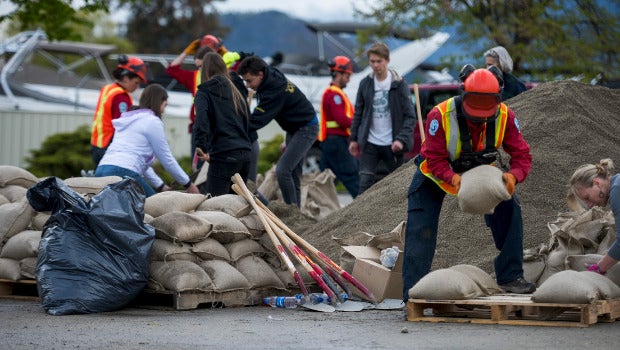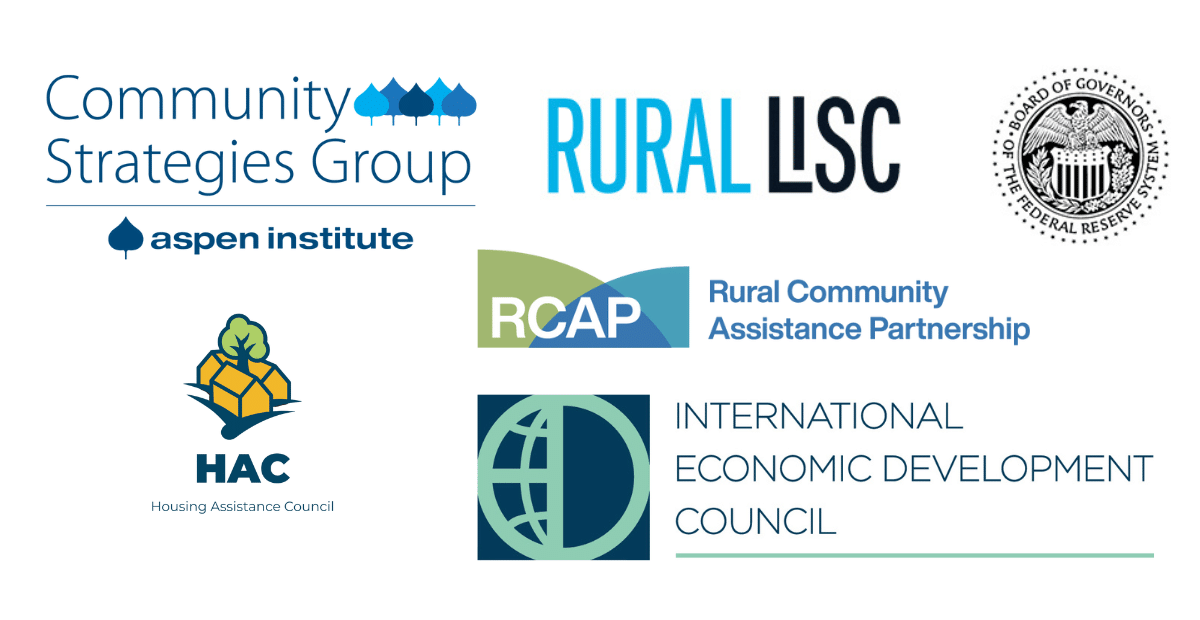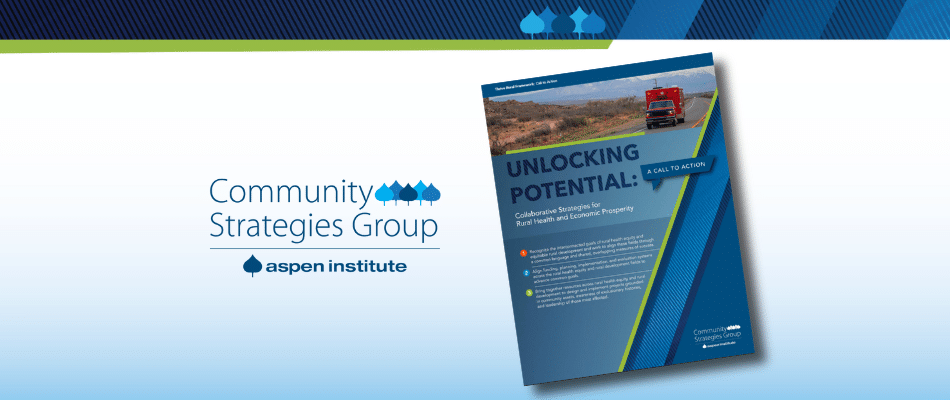Join us for an upcoming ROAD session webinar hosted in collaboration with Aspen CSG, the Housing Assistance Council, the Rural Community Assistance Partnership, Rural LISC, the International Economic Development Council, and the Federal Reserve Board.
Severe weather events and climate-related disasters are growing in frequency and severity, affecting all parts of the country. Rural places and Native nations are among the hardest hit locations – and because of structural barriers, disinvestment, and community capacity challenges, these communities are often disadvantaged when it comes to disaster planning, response, and long-term resilience.
Join the discussion on August 1 from 2 – 4 PM ET to explore how rural communities can be better prepared and more resilient so that when disaster strikes, not just the entire community but the entire region can band together and ensure a swift recovery. Learn how nonprofits like RCAP’s western partner, RCAC, coalitions like Ironton Reconstruction and Development Committee (IRAD), and federal agencies like the Small Business Administration’s Office of Disaster Recovery and Resilience have helped rural and Tribal communities rebuild and then prepare to better weather the storm in the future.
Speakers will share stories of disaster planning and response and how the long road to recovery is possible through partnership and innovation. This discussion will highlight useful tools and resources to help your community build cross-sector resilience and ensure your community is better equipped in the face of a changing climate.
This is a hybrid in-person and virtual webinar. If you are able, please join us in person at the Reservoir Center in Washington, DC, where there will be a 4:00 pm reception after the event. Or join virtually via Zoom. Regardless of how you join, all are welcome.
Moderator

Olga Morales-Pate, CEO of RCAP
Olga Morales-Pate, an accomplished and experienced leader on environmental justice and rural community development issues, became CEO of RCAP in October 2022, after spending 19 years at RCAC, the western RCAP. As RCAC’s Assistant Director of Community and Environmental Programs, she led a team of 48 and managed an annual portfolio of nearly $10 million in grants and contracts. Olga also developed and led RCAC’s regionalization work and authored legislation that established the New Mexico Colonias Infrastructure Fund. She also served on the EPA’s National Drinking Water Advisory Council (NDWAC) as an appointee of President George W. Bush, where she established strong working relationships with the agency while leading advisory efforts on environmental issues.
Speakers

Alan Nazzaro, Disaster Recovery Services Program Manager, RCAC
Alan J. Nazzaro has over 30 years of experience in the public and private sectors and has worked with RCAC since February 2020. Alan manages the new RCAC initiative to implement a Disaster Recovery Services program for rural and Indigenous communities throughout the Western US and Pacific Islands. Alan worked as a community development/disaster recovery consultant before joining RCAC, as a FEMA Community Planning and Capacity Building Division Group Supervisor for the Recovery Directorate, and as a housing manager, for the Town of Vail, Colorado. Alan’s experience includes long tenures with the city of Aurora locally and with HUD in the Rocky Mountain region, as well as working as a consultant with Community Restoration Partners (CRP) LLC.
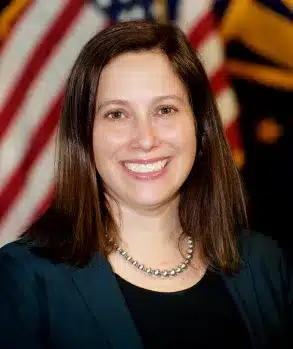
Rafaela Monchek, Deputy Associate Administrator of the Office of Disaster Recovery and Resilience, U.S. Small Business Administration
Prior to joining the SBA, Rafaela Monchek served as the Deputy Assistant Administrator for National Preparedness at the Federal Emergency Management Agency. From 2013-2015, Rafaela served as the Director for Recovery Policy with the White House, National Security Council. She supported White House coordination for drought, severe weather, Atlantic and Pacific tropical activity, wildfires, the Oso mudslide, and the domestic Ebola response. Prior to the National Security Council, Rafaela served in many capacities across the Department of Homeland Security/FEMA, including Homeland Security Senior Advisor on emergency management to the Secretary.

Kristyna Jones, Founder & Managing Partner, K. Jones Advisors, LLC
As Founder and Managing Partner at K. Jones Adivisors, LLC, Kristyna Jones has the opportunity to marry community development investment and finance expertise to build and grow educational spaces that engage young people in civic, art, and academic programs to drive greater personal and educational opportunities and help all young people find success. With over 15 years experience in community and economic development, she has developed significant expertise in financial analysis, organizational strategy, and project management expertise with an impressive history of working on broad based community development projects.
About the ROAD Sessions and Organizing Partners
The ROAD Sessions highlight and unpack rural development ideas and strategies that promote access to inclusive economic opportunity and long-term resilience. ROAD Sessions feature stories of on-the-ground practitioners with experience, wisdom, and savvy to share. The series reflects and emphasizes the full diversity of rural America, spotlights rural America’s assets and challenges, and lifts voices and lived experience from a wide range of rural communities and economies. Each Session includes an added opportunity for peer exchange.
Overall, the ROAD Sessions aim to infuse practitioner stories and lessons into rural narratives, policymaking, and practice across the country and to strengthen the network of organizations serving rural communities and regions.
The ROAD Sessions are virtual exchanges co-designed as part of Thrive Rural – an effort of the Aspen Institute Community Strategies Group with support from the Robert Wood Johnson Foundation – and in collaboration with the Housing Assistance Council, the Rural Community Assistance Partnership, Rural LISC, the International Economic Development Council, and the Federal Reserve Board.
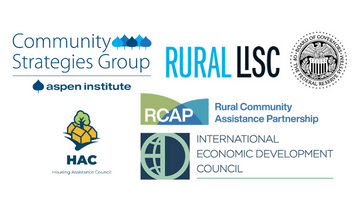
Support for this event was provided by the Robert Wood Johnson Foundation. The views expressed here do not necessarily reflect the views of the Foundation.

